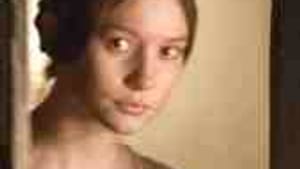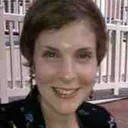Stay in the Loop
BSR publishes on a weekly schedule, with an email newsletter every Wednesday and Thursday morning. There’s no paywall, and subscribing is always free.
The ultimate coming of age story
Cary Fukunaga's "Jane Eyre' on film (1st review)

Like most bookish young women, I read Jane Eyre several times during my adolescence. It was one of the first novels that illustrated for me the power of literature to touch our deepest humanity. But can a film do the same?
In college my professor asked us students which novel we preferred, Jane Eyre or Jane Austen's Emma. I may have been one of the only people to raise my hand in preference for Jane Eyre. Jane Eyre had psychological depth, I felt, whereas Emma had psychological breadth.
Emma? Well, Emma isn't exactly the most self-reflective crayon in the box. The real hero in Emma, as in most Jane Austen novels, is the author herself.
Which is perhaps why Jane Austen novels have been so frequently and successfully adapted to film: The external, social nature of the characters and their relationships is easily conveyed on screen.
Haunted forests
Charlotte Brontë's internal turmoil is much more difficult to capture, notwithstanding the roughly 16 film adaptations of her famous 1847 novel. In Cary Fukunaga's most recent version, the atmospheric elements of the novel take precedence— desolate moors, haunted forests and, perhaps most strongly, love.
Fortunately, the actress Mia Wasikowska has a face that both reveals and conceals a strong, passionate and vulnerable young woman. Wasikowska's muted, hollow beauty accurately depicts Jane's supposed "plainness" while still maintaining a certain mystery.
I found it easy to understand why Rochester, played by Michael Fassbender, is so taken with this common governess. Rochester's passion seems a bit out of place in such an emotionally desolate moviescape. But through his passion, Jane's passion— the "caged bird"— can finally find expression in the love they share.
In a world where love is over-analyzed and over-articulated, there's something incredibly refreshing about witnessing love portrayed as magic.
Alone in the landscape
An orphan without memory of her parents, Jane floats from misfortune to calamity, mistreated and denied love at every turn. Remarkably, her character is all the stronger for the experience; yet she must conquer her (unstated) childhood fears. As a governess, she finally attains a sense of independence.
Alone in the beautiful English landscape, we witness Jane as she survives her heartbreak and terror and adapts to a new set of circumstances where she must, yet again, assert her independence. It's truly a female "coming-of-age" story.
(Judi Dench, dotty and nervy and perfect, plays an understated, slightly irritating and not completely lovable head housekeeper.)
Absence of a narrator
Although the novel is told as a series of reflections from the adult Jane, the film is structured as a series of flashbacks in which Jane's love affair with Rochester serves as the central focus in the series of chapters in her life. Fukunaga's decision to forgo a narrator lends the images greater power and depth.
What most appeals to me about this film is the characters' dedication to a pure moral order— a commitment that today too often seems drowned out in a cacophony of Tweets and blogs. From the very beginning of Jane Eyre, a deep sense of peace settled over me. Imagine: a world without cell phones, without e-mail, without pop culture, where people can— and must— discover on their own the mystery and the virtue within them. Once again I entered the world of Jane Eyre, this time without a printed text but with the equally transformative power of visual imagery.♦
To read another review by Alaina Mabaso, click here.
In college my professor asked us students which novel we preferred, Jane Eyre or Jane Austen's Emma. I may have been one of the only people to raise my hand in preference for Jane Eyre. Jane Eyre had psychological depth, I felt, whereas Emma had psychological breadth.
Emma? Well, Emma isn't exactly the most self-reflective crayon in the box. The real hero in Emma, as in most Jane Austen novels, is the author herself.
Which is perhaps why Jane Austen novels have been so frequently and successfully adapted to film: The external, social nature of the characters and their relationships is easily conveyed on screen.
Haunted forests
Charlotte Brontë's internal turmoil is much more difficult to capture, notwithstanding the roughly 16 film adaptations of her famous 1847 novel. In Cary Fukunaga's most recent version, the atmospheric elements of the novel take precedence— desolate moors, haunted forests and, perhaps most strongly, love.
Fortunately, the actress Mia Wasikowska has a face that both reveals and conceals a strong, passionate and vulnerable young woman. Wasikowska's muted, hollow beauty accurately depicts Jane's supposed "plainness" while still maintaining a certain mystery.
I found it easy to understand why Rochester, played by Michael Fassbender, is so taken with this common governess. Rochester's passion seems a bit out of place in such an emotionally desolate moviescape. But through his passion, Jane's passion— the "caged bird"— can finally find expression in the love they share.
In a world where love is over-analyzed and over-articulated, there's something incredibly refreshing about witnessing love portrayed as magic.
Alone in the landscape
An orphan without memory of her parents, Jane floats from misfortune to calamity, mistreated and denied love at every turn. Remarkably, her character is all the stronger for the experience; yet she must conquer her (unstated) childhood fears. As a governess, she finally attains a sense of independence.
Alone in the beautiful English landscape, we witness Jane as she survives her heartbreak and terror and adapts to a new set of circumstances where she must, yet again, assert her independence. It's truly a female "coming-of-age" story.
(Judi Dench, dotty and nervy and perfect, plays an understated, slightly irritating and not completely lovable head housekeeper.)
Absence of a narrator
Although the novel is told as a series of reflections from the adult Jane, the film is structured as a series of flashbacks in which Jane's love affair with Rochester serves as the central focus in the series of chapters in her life. Fukunaga's decision to forgo a narrator lends the images greater power and depth.
What most appeals to me about this film is the characters' dedication to a pure moral order— a commitment that today too often seems drowned out in a cacophony of Tweets and blogs. From the very beginning of Jane Eyre, a deep sense of peace settled over me. Imagine: a world without cell phones, without e-mail, without pop culture, where people can— and must— discover on their own the mystery and the virtue within them. Once again I entered the world of Jane Eyre, this time without a printed text but with the equally transformative power of visual imagery.♦
To read another review by Alaina Mabaso, click here.
What, When, Where
Jane Eyre. A film directed by Cary Fukunaga, based on the novel by Charlotte BrontÓ«. For Philadelphia-area show times, click here.
Sign up for our newsletter
All of the week's new articles, all in one place. Sign up for the free weekly BSR newsletters, and don't miss a conversation.

 Madeline Schaefer
Madeline Schaefer